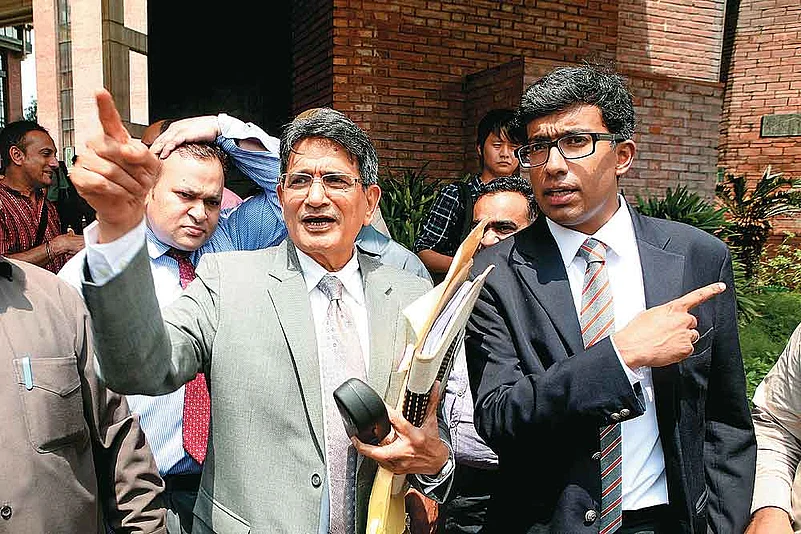I have been accused by some people of supporting an allegedly corrupt body, the BCCI. It is true that there are some defects in the BCCI, just as there are some defects in the judiciary, the media, Bollywood, the medical profession, etc. But the issues I have raised in my report to the BCCI, which can be seen on the website BCCI.tv, raise some very basic questions.
1. Does the judiciary have power to legislate?
The order of the Supreme Court dated July 18 is legislative in nature, as it directs the BCCI to implement most of the recommendations of the Lodha Committee. For instance, an age cap of 70 years, and a maximum tenure of nine years, has been fixed for BCCI office-bearers. Now, the Supreme Court has itself ruled in T.P. George vs State of Kerala, 1992, Supp 3 S.C.C.191 (para 6), that the age of superannuation cannot be fixed by the judiciary, only by the legislature or the executive. How then can it fix the age cap for BCCI office-bearers? If that is permissible, then the judiciary can also fix an age cap for ministers, MPs, film stars, editors and so on.
Our system stipulates a clear separation of powers between the three organs of the state, and it is not permissible for one organ to encroach into the domain of another. There are numerous judgements of the Supreme Court to the effect that judges cannot legislate as that is the function of the legislature, and I have quoted about 40 such decisions in my report. These were binding precedents on the two-judge bench of Justices Thakur and Khalifulla, but they have all been overlooked.
Thus, in Divisional Manager, Aravali Golf Course vs Chander Hass, 2007, the Supreme Court observed:
“Judges must know their limits and must not try to run the government. They must have modesty and humility, and not behave like emperors. There is broad separation of powers under the Constitution and each organ of the state, the legislature, the executive and the judiciary must have respect for the others and must not encroach into each other’s domains.”
If there is a law, judges can certainly enforce it, but judges cannot create a law and then seek its enforcement. The order of July 18 creates law, which was not in the domain of the judiciary.
2. Can the judiciary think of usurping the powers of a statutory authority?
The BCCI is registered as a society under the Tamil Nadu Societies Registration Act. Section 36 of that Act states that if there is a complaint against the functioning, composition etc of a society, the Registrar of Societies can inquire into the complaint and pass suitable orders, which can even go to the extent of cancelling the society’s certificate of registration (vide sections 37 and 38). Thus, it is only the Registrar of Societies who can inquire into complaints against the BCCI. How can the judiciary usurp this power?
In G. Veerappa Pillai vs Raman & Raman Ltd AIR, 1952, S.C.192, the Supreme Court said the high court cannot direct the Regional Transport Authority (RTA) to grant a bus permit, because the power to grant a bus permit is with the RTA, and by passing such an order the high court itself will be acting as the permit granting authority. Similarly, in State of UP vs Raja Ram Jaiswal, 1985, (2) S.C.C. 131, the Supreme Court held that under the relevant statute, the power of granting a cinema licence is with the district magistrate, and hence the high court cannot direct the district magistrate to grant the licence. There are many other decisions of the Supreme Court on this point.
How then can the Lodha Committee inquire into complaints against the BCCI? As Justice Cardozo, the celebrated judge of the Supreme Court of the United States, said in his book The Nature of the Judicial Process, “A judge is not a knight errant roaming at will in pursuit of his own ideal of beauty and goodness.” A Judge has to decide in accordance with the law, not on his own notions.
3. Can the court pass orders contrary to a statute?
Under section 12 of the Tamil Nadu Societies Registration Act, a society by special resolution can amend its memorandum of association and bylaws. How can the Lodha Committee or the court do this? It is well settled in law that when the procedure of doing something is prescribed by the statute, then only that procedure has to be followed, and nothing else. The constitution of the society, rights of membership, election of office-bearers, right to vote etc are all fixed in the memorandum of association and bylaws of the BCCI. The Lodha Committee recommendations, which have been ordered to be implemented, have drastically changed most of them. The committee has prepared a draft memorandum of association, which must be implemented by the BCCI. Thus, for instance, while the BCCI had five vice-presidents, the Lodha Committee says there will be only one. There were 14 members in the working committee of the BCCI, but the Lodha Committee has reduced them to nine, and has even gone further to state from which categories these will come. Thus, the Lodha Committee has made a new constitution for the BCCI from definition to dissolution, and directed the state cricket associations (which are societies registered under their state laws) to follow suit. This was clearly in violation of section 12 of the Tamil Nadu Societies Registration Act.
If a judge is allowed to pass orders contrary to law, there will be chaos. Suppose the maximum punishment of a certain crime is 10 year’s imprisonment under the Indian Penal Code, can a judge say that in view of the horrendous and exceptionally brutal nature of a particular crime covered by that provision, he will ignore the statute and impose death sentence? That would be clearly illegal.
4. Can the judiciary outsource its power to impose punishment?
The Supreme Court has not only permitted the Lodha Committee to change the constitution and rules of the BCCI, it has also empowered the committee to impose punishment. The power to impose punishment lies only with the court, and it cannot be outsourced. For instance, can the court outsource its power to impose punishment for crimes under the Indian Penal Code to the munsif or a municipality or a private body? This would clearly be illegal.
5. Can the bench of a court ignore and brush aside binding decisions?
In India, we have followed the Anglo-Saxon doctrine of precedents. Judgements of larger, and even coordinate benches, are binding on a subsequent bench, though if the subsequent bench disagrees, it can refer the matter to a larger bench giving its reasons. A decision given ignoring binding precedents is known as a judgement per incuriam, and is not binding on anyone.
The order of the two-judge bench of the Supreme Court dated July 18 is in my opinion an order per incuriam as it has ignored earlier decisions of the court, many of which were of larger benches, holding that judges cannot legislate.
One can understand the zeal of the judges to clean up the system, but that has to be done in accordance with the Constitution and the law, and not by overlooking them. In my view, the order dated July 18 relating to the BCCI needs to be reviewed.
(Justice Katju is former judge, Supreme Court of India)
Slide Show
Markandey Katju has a reputation of ‘saying it as it is’. His opinions have invited both acclaim and criticism from all quarters of the political spectrum. Yet, it is largely agreed that they are always unrestricted and original, if occassionally erring on the side of drama. On cricket, he's clearly said he has no interest in the sport. He recently tweeted, “I do not watch cricket. I regard cricket as the opium of the Indian masses (the other being Bollywood).”


























